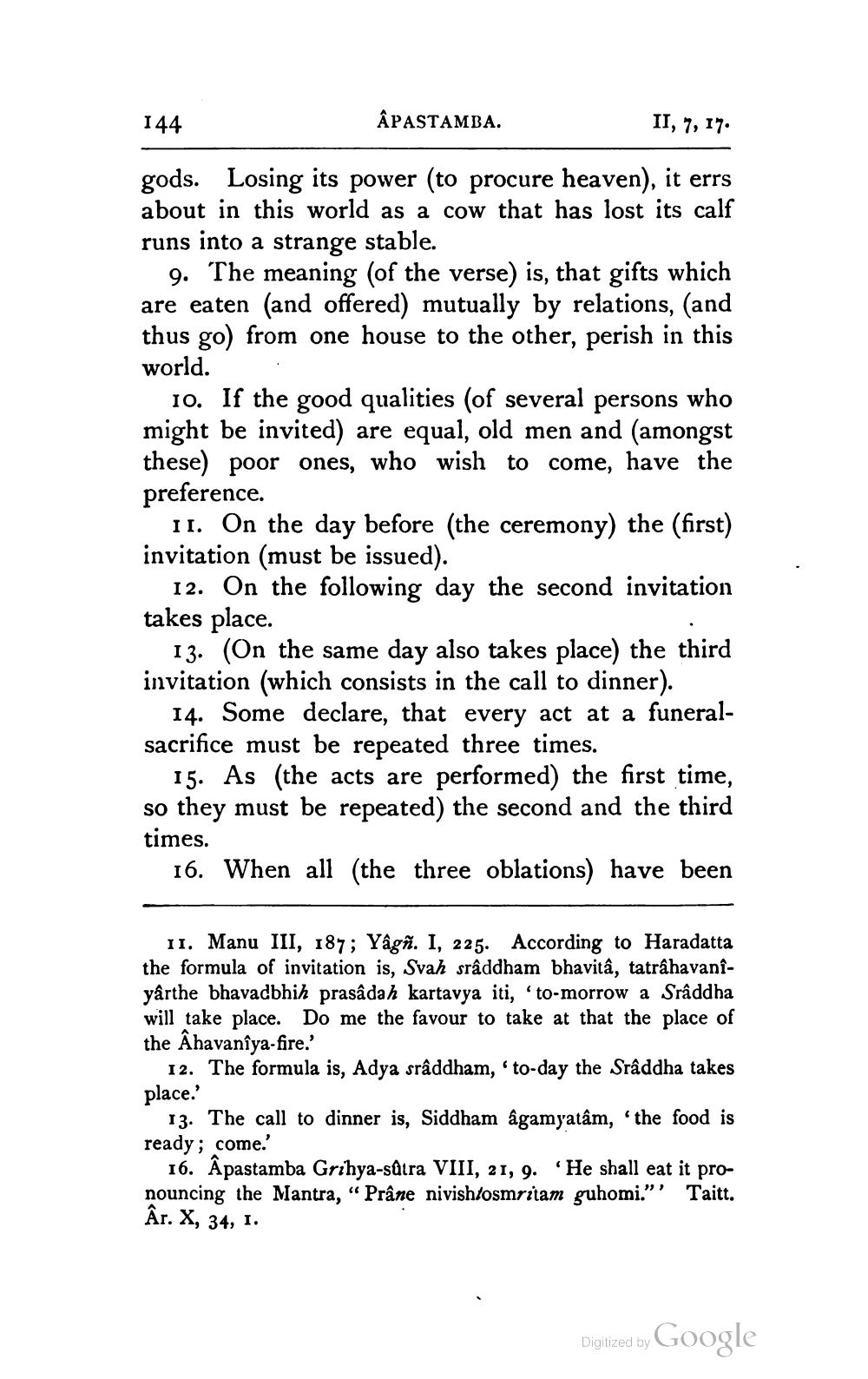________________
144
ÂPASTAMBA.
gods. Losing its power (to procure heaven), it errs about in this world as a cow that has lost its calf runs into a strange stable.
9. The meaning (of the verse) is, that gifts which are eaten (and offered) mutually by relations, (and thus go) from one house to the other, perish in this world.
II, 7, 17.
10. If the good qualities (of several persons who might be invited) are equal, old men and (amongst these) poor ones, who wish to come, have the preference.
II. On the day before (the ceremony) the (first) invitation (must be issued).
12. On the following day the second invitation takes place.
13. (On the same day also takes place) the third invitation (which consists in the call to dinner).
14. Some declare, that every act at a funeralsacrifice must be repeated three times.
15. As (the acts are performed) the first time, so they must be repeated) the second and the third times.
16. When all (the three oblations) have been
11. Manu III, 187; Yâgñ. I, 225. According to Haradatta the formula of invitation is, Svah srâddham bhavitâ, tatrâhavanîyârthe bhavadbhih prasâdah kartavya iti, to-morrow a Srâddha will take place. Do me the favour to take at that the place of the Âhavanîya-fire.'
12. The formula is, Adya srâddham, 'to-day the Srâddha takes place.'
13. The call to dinner is, Siddham âgamyatâm, 'the food is ready; come.'
16. Âpastamba Grihya-sûtra VIII, 21, 9. 'He shall eat it pronouncing the Mantra, "Prâne nivish/osmritam guhomi." Taitt. Ân. X, 34, I.
Google
Digitized by




